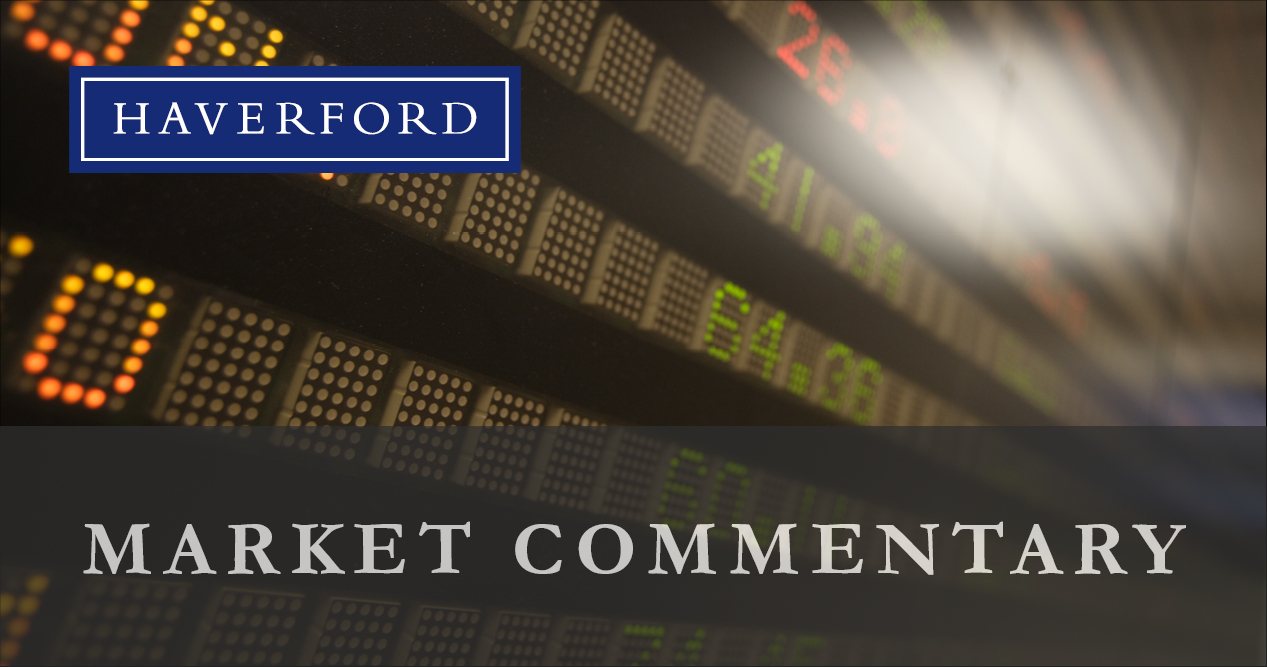Tim Hoyle, CFA, Chief Investment Officer
thoyle@haverfordquality.com
Is Now the Time to Consider Investing Outside of America the WEIRD?
I am a big (and admittedly biased) fan of America; our economic system, rugged individualism, and open society. However, the media’s fawning over the ego-driven space race of billionaires left even me wondering, “Is this really the best use of capital for society? Is this largess worthy of praise?” I concluded that what makes America, America is that our society fosters, encourages, and allows individuals to spend their money, invent, and live their lives as they see fit. Necessity may be the mother of invention, but freedom is likely its father.
A recent Freakonomics podcast drives this point home. In Episode 469: The U.S. is Just Different – So Let’s Stop Pretending We’re Not, Stephen Dubner interviews several academics that have studied the benefits of loose versus tight societies. The U.S., no surprise, is on the loose end of the spectrum. On the other end are tight cultures, such as South Korea, Singapore, and China. Not only is the U.S. loose and individualistic, we are also chief among the WEIRD economies: western, educated, industrialized, rich, & democratic.
Germany is WEIRD, but not as loose as the U.S. Estonia is more loose, but not nearly as WEIRD. Our unique culture has in many ways permeated our DNA, and explains why some successful policies of Scandinavia just don’t work in the U.S. and why our successes can’t be mimicked in Afghanistan. The pandemic response is an obvious cultural learning point. Looser countries have reported five times the Covid cases and nine times the deaths of tighter countries. But from another angle, loose countries are more likely to innovate and thus quickly create effective vaccines. “Both styles have their upsides and downsides. A loose country, like the U.S., tends to do well in creativity and innovation; in tolerance and openness; in free speech and a free press. The downsides of looseness are less coordination, less self-control, more crime and quality-of-life issues.[1]”
Does our DNA mean the U.S. will always present a better opportunity set for investment? During the past ten years, the value of Corporate America has trounced almost every other stock market in the world. The value of Apple is greater than the entirety of the German DAX index, and nearing the value of the 40 companies comprising France’s CAC index. Despite these recent results, and maybe because of them, even the most ardent Yankophile should consider the opportunities that may exist across the pond.
The underperformance of Corporate Europe was laid bare in the recent Economist article[2], Europe is now a corporate also ran. Can it recover its footing? The article concludes that European underperformance has been the result of mismanagement, focus in the wrong industries, and a lack of innovative start-ups. Concluding European firms have been mismanaged may be too harsh, but there is no denying Europe lacks the thriving tech sector of the U.S. While tech innovation is the prime symptom ailing the European markets during the past decade, underlying root causes such as a fragmented fiscal policy within a monetary union, lack of population growth, and regulatory hurdles remain prevalent.
After reading this article, published by a European based magazine, one wonders if sentiment hasn’t reached a nadir and are American companies structurally superior to those of Europe? The international portfolio managers at Albert Bridge Capital don’t believe so and have articulated why they believe the Economist article suffers from a strong anti-European bias. They point out that many great companies are based in Europe, and that over the past decade, “things have gotten out of whack.”[3] European equity performance matched that of their U.S. peers in the thirty years ending December 2009, returning 11.5% per year. However, in the years since, U.S. equity returns have outpaced Europe by more than 7% per annum, as valuation multiples expanded to record levels.

Source: Albert Bridge Capital
According to Barron’s, U.S. stocks now trade at 24 times this year’s estimated earnings, versus an average of 16.6 over the past 15 years. “It’s time to look abroad for opportunities. Stocks in most other countries—developed or emerging—are still much cheaper than their U.S. peers. Those economies may be recovering more slowly, but they are recovering. And as they do, their local businesses will improve and those stocks will have further to run.”[4]
While we aren’t prepared to predict a renaissance of innovation in Europe and other countries, a strong case can be made for why international markets could outperform in the near term. Vaccine deliveries outside of the U.S. are still accelerating, relative valuations are at historically attractive levels, and earnings growth is predicted to outpace the U.S. into year end. Despite any hometown bias you may have, now may be the time to focus on investment opportunities in Europe and elsewhere around the world.
[1] https://freakonomics.com/podcast/american-culture-1/
[2] https://www.economist.com/briefing/2021/06/05/once-a-corporate-heavyweight-europe-is-now-an-also-ran-can-it-recover-its-footing
[3] https://www.albertbridgecapital.com/post/american-vs-european-companies
[4] https://www.barrons.com/articles/international-value-funds-global-recovery-51627065509
Views and security holdings are subject to change at any time based on market and other conditions. This commentary is for informational purposes only and should not be construed as investment advice or recommendations with respect to any information or specific securities presented. Each individual investor’s circumstance is unique and you should consult with your investment professional prior to any portfolio decisions. Some of the information presented may contain forward-looking statements. These statements are only forecasts, based on our opinions. Index returns are provided for illustrative purposes only. Indices are unmanaged, do not incur fees or expenses and cannot be invested in directly. Investing outside the United States entails additional risks such as political and economic risks and the risk of currency fluctuations. No forecasts are guaranteed, and past performance is not a guarantee of future results.
